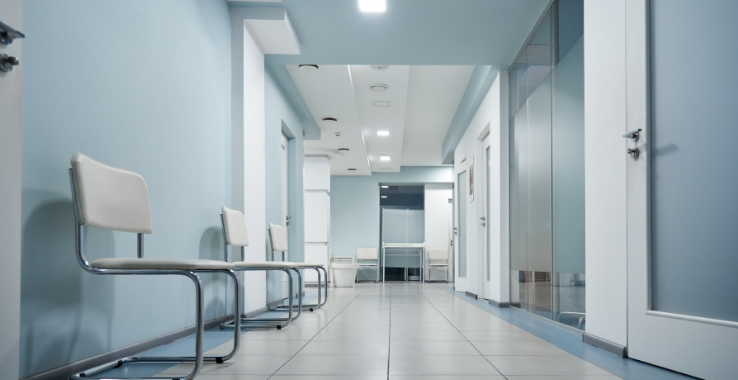Healthcare Facilities
Consult with an expert & Start today!

Enhancing Indoor Air Quality In Healthcare Facilities
Indoor air quality is an important factor in healthcare facilities. Poor indoor air quality can lead to a variety of health problems for both patients and staff. These problems can range from minor annoyances to serious respiratory illnesses.
There are a number of factors that contribute to poor indoor air quality. These include pollutants from outside the facility, cleaning products and chemicals used inside the facility, and off-gassing from building materials and furnishings.
There are a number of steps that healthcare facilities can take to improve their indoor air quality. These include proper ventilation, using natural or low-emitting cleaning products and chemicals, and choosing building materials and furnishings that have low levels of volatile organic compounds (VOCs). Taking steps to improve indoor air quality can help to create a safer and more comfortable environment for everyone.
One of the most important aspects of protecting patients, staff, and visitors in healthcare facilities is to maintain indoor air quality (IAQ). Good IAQ can help reduce the spread of infections and diseases, while also promoting healing and recovery. There are a number of factors that can affect IAQ, including weather, ventilation, building materials, and cleaning and maintenance practices.
There are a number of things that healthcare facilities can do to improve IAQ. Some of these include:
Improve ventilation: Proper ventilation is essential for good IAQ. Healthcare facilities should ensure that there is adequate air exchange between the indoors and outdoors. This can be achieved through the use of mechanical ventilation systems, natural ventilation, or a combination of both.
Use air purification: Air purifiers can help remove contaminants from the air, improve IAQ, and protect patients and staff from exposure to airborne diseases.
Implement proper cleaning and maintenance practices: Good cleaning and maintenance practices can help reduce the build-up of dust, dirt, and other contaminants that can affect IAQ.
Use green building materials: Green building materials, such as low-emitting paints, carpeting, and adhesives, can help improve IAQ by reducing the release of harmful chemicals into the air.
Educate staff and visitors: It is important to educate staff and visitors about IAQ and what they can do to improve it. This includes teaching them about proper hand hygiene, avoiding sharing personal items, and wearing face masks when necessary. By taking steps to improve IAQ, healthcare facilities can create a safer and more comfortable environment for patients, staff, and visitors.
ZoneAir’s unique technology helps to improve indoor air quality in healthcare facilities by reducing the amount of harmful airborne contaminants. This results in a cleaner, healthier environment for patients, staff, and visitors. ZoneAir also helps to reduce the spread of infection and can help to improve patient outcomes.
In healthcare settings, air sanitizers can help to reduce the spread of infection and improve the overall quality of care. One type of air sanitizer is an ultraviolet germicidal irradiation (UVGI) device.
These devices use ultraviolet light to kill bacteria and viruses. UVGI devices are effective at reducing the levels of many different types of contaminants, including mold, mildew, and bacteria. However, they are not effective against all types of contaminants, and they can be expensive to purchase and operate.
Another type of air sanitizer is an ozone generator. Ozone generators create ozone, a gas that is effective at killing bacteria and viruses. Ozone generators are less expensive than UVGI devices, but they are not as effective against all types of contaminants.
Breathe Better With ZoneAir! Contact Us Today!
Learn how ZoneAir can help protect your children, employees, patients, and family! ZoneAir offers a wide range of products tailored to different environments to improve air quality! For questions or comments, contact us today at 731-632-3400.
